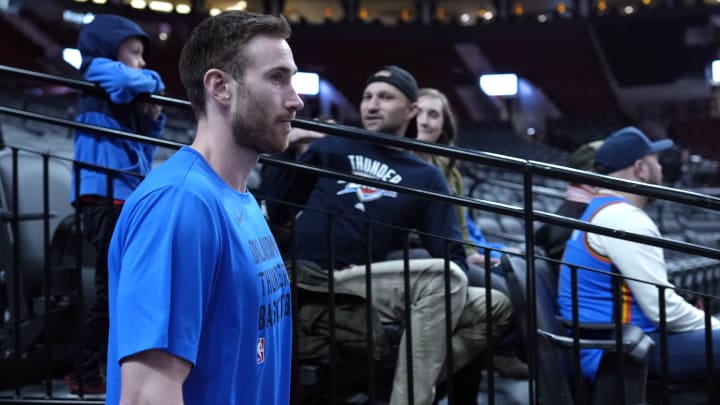OKC Thunder: Gordon Hayward Proves Not Every Trade Can be a Great One

Just yesterday, the news broke that Gordon Hayward officially retired from the NBA. After a fantastic start to his career with the Utah Jazz, the horrifying injury he sustained on the Boston Celtics altered his future forever, preventing him from ever truly getting back to an All-Star level.
The 34-year-old then spent four seasons with the Charlotte Hornets before being traded at last season's deadline to the Oklahoma City Thunder, which to put it bluntly, didn't work out in the slightest.
Hayward was immediately unhappy in Oklahoma City, disagreeing with the role that he was put in which varied much differently than in the past. The potential for veteran leadership and experience in the playoffs seemed like the pairing could work out, but the fit was noticeably awkward from the start. He never gelled with the Thunder's young core, both off and on the court.
Both parties likely regret the trade ever happening. Tre Mann and Vasilije Micic both played well once they moved over to Charlotte, while Hayward never got to thrive in Oklahoma City. It leaves a sour note on an otherwise outstanding career for the veteran, and it shows that the Thunder isn't incapable of making a bad decision every once in a while.
Though, the situation shouldn't leave a bad impression on Hayward or Oklahoma City. Sometimes things just don't work out in the NBA world, and that's ok.
As many beneficial moves as the Thunder has made over the last few years, not every single one is going to be a hit. It happens in the draft, free agency and trades all the same. There was reason to believe Hayward could've been a help in its playoff run, but with the combination of age, a lack of a clear role and incomplete fit, it ended up just being a failed experiment.
As a championship-contending team, you have to experiment. If things always stays the same, there's no variety in a team's lineup or a chance taken at making it better. Just because Oklahoma City struck out on Hayward doesn't mean it'll stop making moves like it in the future, especially once it gears up for another playoff run at the 2025 deadline.
The pairing not working out doesn't need to be blamed on either party. It wasn't the right place for Hayward at that stage in his career, and the Thunder could've gone for a player that addressed more of its weaknesses. But, it can be a lesson for the future of the organization.
Not everything will work out the way you hoped.
Want to join the discussion? Like Thunder on SI on Facebook and follow us on Twitter to stay up to date on all the latest Thunder news. You can also meet the team behind the coverage.
